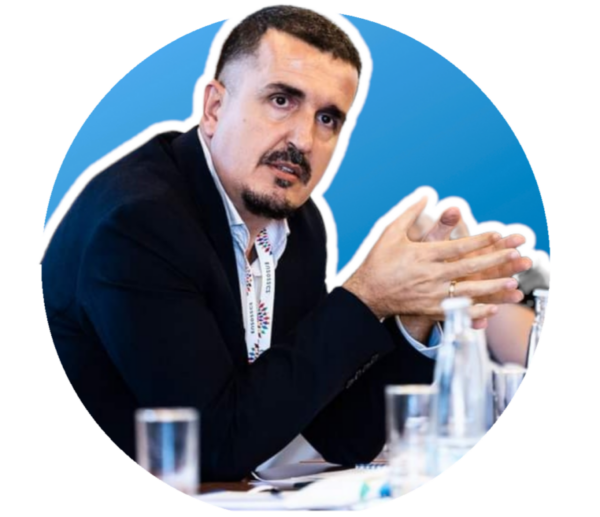Autor: Xhelal Neziri
TWO COMPETING PROCESSES?
The Berlin process was revived where it began – in the German capital. This Process, launched by former German Chancellor Angela Merkel in 2014, was among the most serious initiatives for the Europeanization of the Western Balkans (WB) and the integration of the region into the European Union (EU). The November 3rd summit gave a clear answer to the dilemma about the fate of this initiative after Merkel’s retirement from politics – the Berlin Process will continue even under the leadership of the new chancellor, the Social Democrat Olaf Scholz. The signing of three agreements on the free movement of people with identity cards and mutual recognition of diplomas among the six WB states brings the Berlin Process back to the region’s most serious and hopeful initiative.
Does this mean that this is the end of the Open Balkans initiative, launched in 2019 by Serbia, Albania and North Macedonia? The answer is NO. Open Balkans will continue to be a parallel initiative to achieve the same goals as the Berlin Process: the free movement of people, services, capital and goods.
These two initiatives seem to compete with each other. The last summit within the framework of the Berlin Process was held in 2020 in Sofia, while the void created after Merkel’s withdrawal from politics and the impasse of EU enlargement was filled by the Open Balkans initiative. In these two years, there has been busy communication in the Belgrade-Tirana-Skopje relationship and three summits have been held, which produced agreements for the movement of goods without waiting at the border, for mutual aid in case of disasters and for overcoming the energy crisis. The recognition of diplomas, the removal of administrative barriers for companies, the joint investment agency, the joint film fund and the organization of joint cultural events, are agreed projects but have not yet yielded results.
THE LICENSE PLATE PROBLEM
The shortcoming of Open Balkans is the lack of a long-term full involvement of WB countries. Kosovo is against, while Montenegro and Bosnia and Herzegovina do not have a clear position for or against this initiative. In this segment is the advantage of the Berlin Process, which is comprehensive and has the authority to facilitate the overcoming of major problems in the region, especially the one between Pristina and Belgrade.
The French-German proposal for solving the Pristina-Belgrade problem envisages signing another agreement for the normalization of Kosovo-Serbia relations next year, the same as the one in 2013. In this agreement, it is proposed that Serbia does not prevent Kosovo’s membership in the organizations international and after 10 years, when it is on the verge of joining the EU, to actually recognize Kosovo as an independent state. This proposal was met with reservations by Pristina, but was opposed by Belgrade, especially by the pro-Russian current in the Serbian government, represented by Ivica Dacic, chairman of the Socialist Paris of Serbia and deputy prime minister.
Serbian President Aleksandar Vucic’s absence from the Berlin Process Summit last week was his response to Olaf Scholz and Emmanuel Macron’s proposal for a solution to the key Balkan issue. The problematization of Kosovo’s license plates to the point of a new armed conflict, meanwhile, is the result of the activities of pro-Russian currents that wish to undermine any normalization of relations between Pristina and Belgrade.
Serbia has agreed with these solutions since 2011, when the Agreement on freedom of movement with Kosovo was reached in Brussels. This agreement determines the removal of Serbian license plates with the signs of the cities of Kosovo, such as PR (Pristina), GL (Gilan) KM (Mitrovica), and their replacement with RKS (Republic of Kosovo). These plates are not valid if citizens of Kosovo enter the territory of Serbia and they are replaced with temporary plates. In order to avoid this obstacle, in the agreement Kosovo is obliged to issue KS license plates instead of RKS license plates for five years, which Serbia has accepted. After five years, i.e. in 2016, Kosovo has agreed to continue issuing KS license plates for another five years. This deadline also expires in September 2021, while the attempts of the Kosova government to implement the agreement have failed due to the rejection of the ethnic Serbs. The refusal is related to the non-implementation of the Association of Serb-majority municipalities, a solution reached within the agreement reached in 2013, harmonized in Brussels in 2015. In December 2015, the Constitutional Court of Kosovo found that the principles of the Association are not fully harmonized with the Constitution of Kosovo, thus stopping the implementation of the Agreement. The problem, according to the Constitutional Court, is the fact that the Association is not based on multi-ethnicity, but that it unites municipalities of one ethnicity.
The withdrawal of Serbian ministers, judges, policemen, customs officers and administrators from the institutions of Kosovo is conditioned by the implementation of the Association.
BACKGROUND
The absence of Vucic in Berlin and the sending of Prime Minister Ana Bernabic to the Summit has opened up many dilemmas in public opinion. The withdrawal of ethnic Serbs from the institutions of Kosovo is the most radical step that has been taken so far to reject the sovereignty of the Kosovar state. Reports of armed men operating in the North have raised concerns about the possibility of armed clashes that could bring back the 1999 war.
What does Vucic want to achieve with this? It has two goals: the first, to bury the Franco-German proposal and the second – to create a suitable environment for the implementation of the Association.
In this whole period, the interests of Russia are not excluded either, which since 1999 wants to preserve the status quo that gives it more room for influence in the region. On Saturday, Vucic met the ambassadors of Russia and China in Belgrade, who gave him support in “protecting Serbia’s sovereignty” in Kosovo. Meanwhile, he had a telephone conversation with the US ambassador, who supported the French-German proposal

